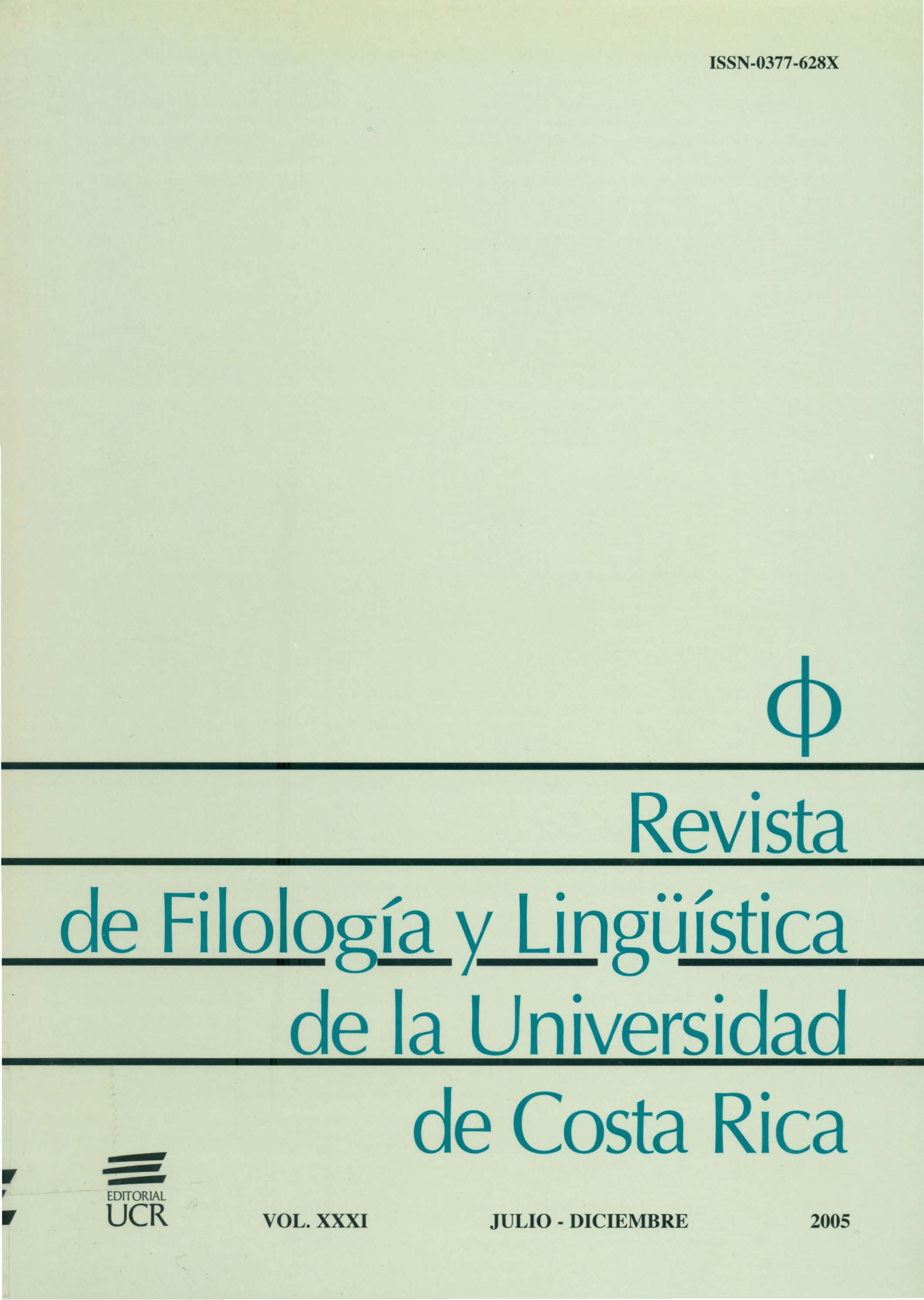Resumen
El presente estudio explora algunos de los factores lingüísticos, socioculturales y de personalidad que han contribuido para que la autora haya alcanzado un buen dominio del inglés como lengua extranjera, haya aprendido otros idiomas con relativo éxito, pero no haya logrado aprender el árabe, su lengua por herencia.
Citas
Aguilar, Liz. 2001. "Lanzaron libro sobre presencia árabe en El Salvador". El diario de hoy. Lunes 2 de abril.
Arnold, Jane. (ed.). 1999. Affect in language learning. New York: Cambridge University Press.
Brown, H. Douglas. 2000. PrincipIes of language teaching and learning. Fourth edition. New York: Longman.
Bustamante, Gustavo Antonio. (n. d.). "El derecho del trabajo y los inmigrantes en El Salvador." Dissertation, Universidad de El Salvador.
Doughty, Catherine J. & Michael H. Long (eds.). 2003. The handbook o/ second language acquisition. MA. Blackwell Publishing.
Dewaele, Jean-Marc & Aneta Pavlenko. 2002. "Emotion vocabulary In interlanguage". Language Learning. 52 (2): 263-322.
Dornyei, Zoltán. 2001. Teaching and researching motivation. New York: Longman.
Ehrman, Madeline. 1999a. "Ego boundaries and tolerance of ambiguity in second language learning" In Jane Arnold (ed.), 68-86.
(1999b). Affect in language learning. New York: Cambridge University Press.
Fishman, Joshua A. 2001. "300-plus years of heritage language education in the United States." In 1. Peyton, D.A. Ranard & S. McGinnis (eds.), 89-97. Washington, DC: Center for Applied Linguistics.
Gass, Susan M. 2003. " «Input and Interaction.» In Doughty, Catherine 1. & Long, Michael H. (eds.), 224-255.
Genesee, Fred. (ed.) 1994. Educating second language children: The whole child, the whole curriculum, the whole community. New York: Cambridge University Press.
Harding, Edith & Philip Riley. 1999. The bilingualfamily: A handbookfor parents. New York: Cambridge University Press.
Hasbún, Leyla & Mayra Solís. 1997. "Análisis de los usos asimétricos de las formas de tratamiento pronominal en una comunidad costarricense". Revista de Filología y Lingüística de la Universidad de Costa Rica. 23 (2): 139-152.
Hinton, Leanne. 1999. "Involuntary language loss among immigrants: Asian-American linguistic autobiographies". ERIC Digest EDO-436982.
Klein, Wolfgang. 1986. Second language acquisition. New York: Cambridge University Press.
Kymlicka, Will & Alan Patten. 2003. "Language rights and political theory." Annual Review of Applied Linguistics. 23: 3-21.
Lightbown, Patsy M. & Nina Spada. 1999. How Languages are learned. New York: Oxford University Press.
MacGregor-Mendoza, Patricia. 2000. "Aquí no se habla español: Repression in the Southwest schools". Bilingual Research Journal. 24 (4).
McPherson, Seonaigh. 2005. "Negotiating language contact and identity change in developing Tibetan-English Bilingualism." TESOL Quarterly, 39 (4): 585-607.
Medgyes, Péter. 2002. Laughing matters. New York: Cambridge University Press.
Peyton, J., D.A. Ranard & S. McGinnis. 2001. Heritage languages in America: Blueprint for the future. Washington, DC: Center for Applied Linguistics.
Richards, Jack C. & Theodore S. Rodgers. 2001. Approaches and methods in language teaching. Second Edition. New York: Cambridge University Press.
Romaine, Suzanne. 1989. Bilingualism. Massachusetts: Basil Blackwell.
Vargas, C. A. 1974. "El uso de los pronombres vos y usted en Costa Rica". Revista de Ciencias Sociales de la Universidad de Costa Rica. 8: 7-31.

